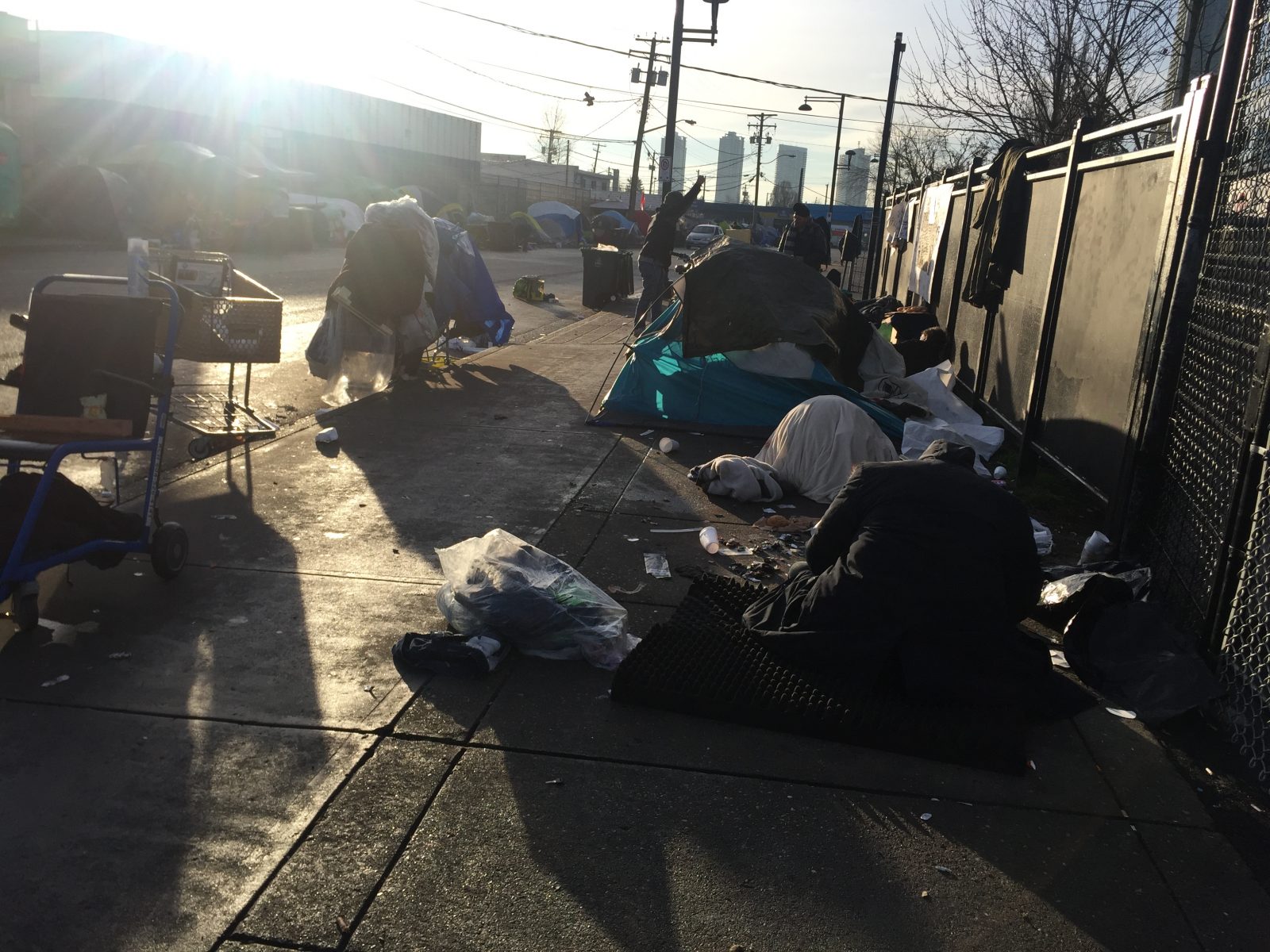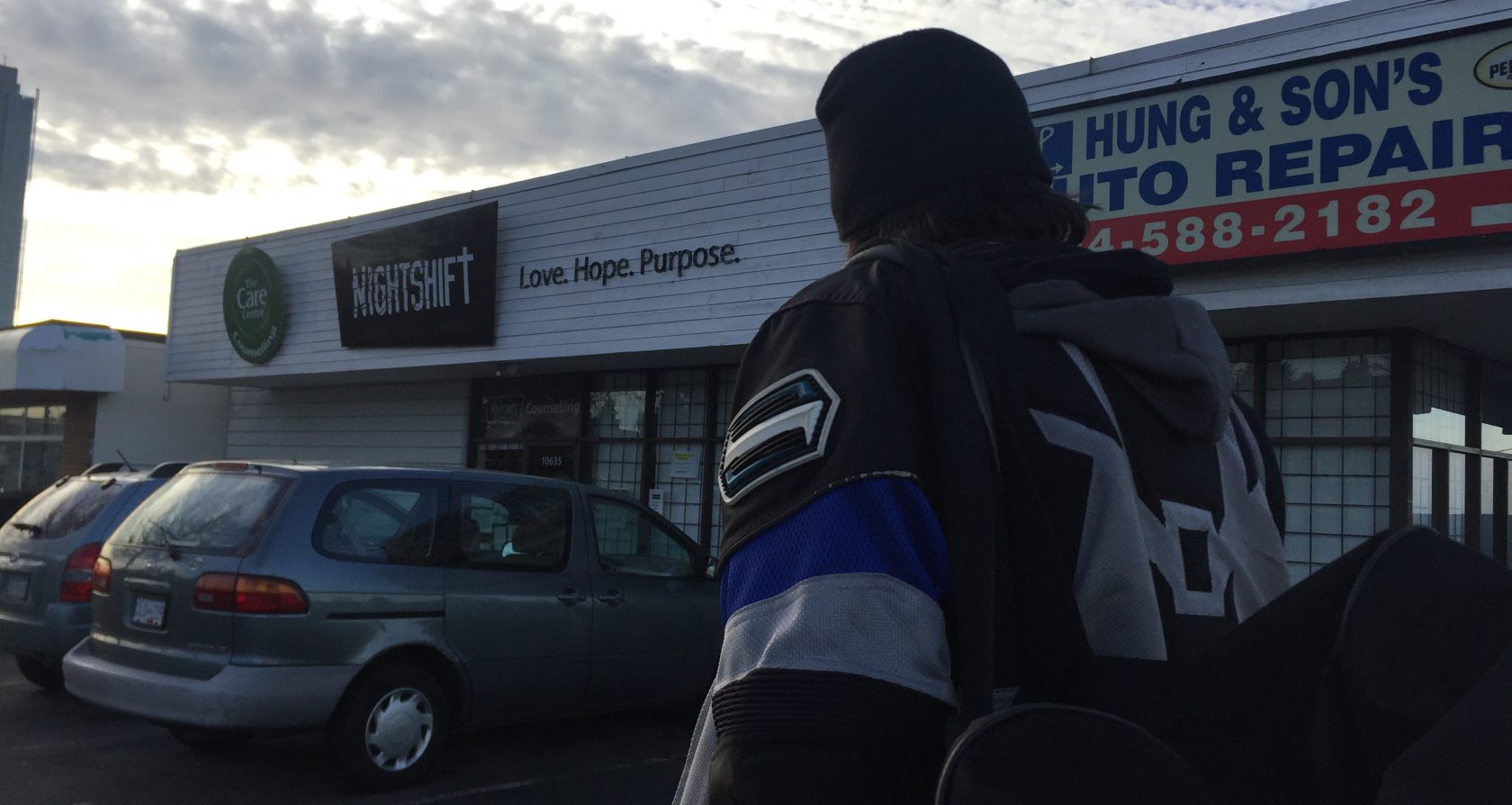
As one of the longest residents of Surrey’s tent city, Dale commanders respect. And he doles plenty of it out too. Even when city bylaw workers come to chuck unmanned tents and restricted heaters, Dale stays calm. “They are just doing their job.” Police officers, social workers, and housing workers keep trying to do their job too. They try to interest Dale in beds at shelters, in treatment programs, in the latest housing pilot. Dale politely declines.
Dale doesn’t want help. He doesn’t believe he is worthy enough. If he couldn’t save his kids from a life in care, why should someone save him? .
We spent the last month of 2017 getting to know over 75 people living on and off the streets in Surrey, British Columbia and Edmonton, Alberta. Shame cast a wide shadow. A sizable segment of folks held themselves wholly responsible for their struggles. They saw themselves as the ones who fucked-up, repeatedly. They were embarrassed to keep in contact with friends and family. Only other folks on the streets could now accept them as they were. Robert, newly homeless, put it best: “Since I’ve been out here, I’ve met some awful people, but mostly the most giving and non-judgmental people anywhere.”
Social services often reinforce the notion that people must take responsibility for change. Indeed, many workers on the streets had a clear refrain: “We can only help the people who want to help themselves.”
And it makes sense. You can only knock on so many tents, offer so much assistance, and face so much rejection, before you come to the conclusion that people have to put on their own bootstraps.
Challenge is, how do you enable people to feel worthy enough for bootstraps? What is a healthy sense of agency and self-control? And how do you build up a deep seated sense of worth when the welfare state was designed to separate the ‘worthy and deserving poor’ from the ‘unworthy and non-deserving poor’ – particularly when eligibility criteria and diagnostic labels perpetuate an identity mired in deficiency and loss.
What would our social services look like if they didn’t mine for deficiency narratives? How could social services amplify alternative narratives that slowly disrupt notions of unworthiness, self-judgement, and hyper-responsibility?
In 2018, we’ll explore interventions that address the interplay between personal shame, institutional shame, and social shame. We’ve seen some pretty promising practices at organizations like The Mustard Seed and Boyle Street in Edmonton. Got any examples of social policies and social services addressing shame head on? We’d love to hear from you!
